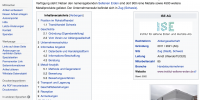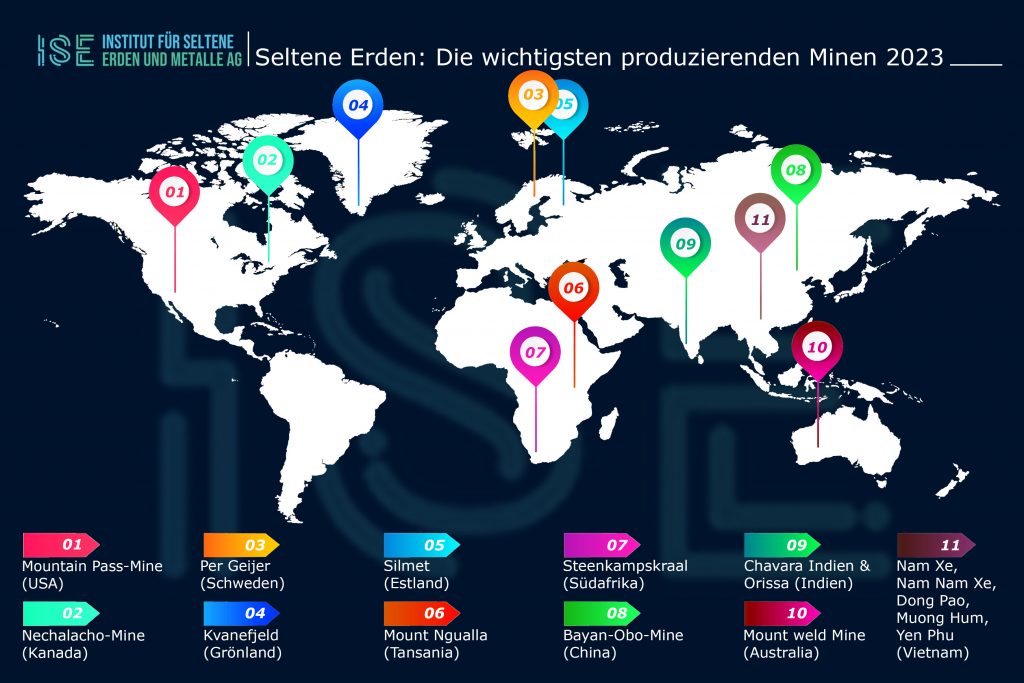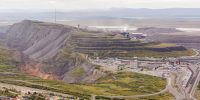The start-up Infinium wants to make CO2-intensive processes in metal production more environmentally friendly.
In a lab building opposite a yoga studio in an office park in Natick near Boston, Adam Powell holds up a shiny white ceramic tube. This is the key to making much used metals much cheaper and, above all, more environmentally friendly, he says.
Powell is chief of technology of Infinium, a start-up that is a spinoff from Boston University. The company has been working on their process since 2008 and is now ready to launch their first products - the rare earths neodymium and dysprosium. These materials are necessary to build high-performance magnets, which even high temperatures can not harm. They are among others in the generators of wind turbines and the electric motors of cars.
Infinium's production process also works for other metals, including magnesium and aluminum. Rare earths are the first thing because they achieve a much higher price. The first customer will be the US government, the material goes into the country's strategic reserve. Rare earths are only found in a few regions of the world, and so far high costs and environmental aspects have ensured that American companies can not produce these metals at home.
The Infinium technique solves a specific production problem: the transformation of pre-processed ores, metal oxides, into the actual metal. This can be done by immersing in a bath of molten salts which is then energized. In addition to the emissions that are generated during energy generation, the process itself releases greenhouse gases. One of the electrodes is usually carbon that reacts with oxygen, forming CO2.
The ceramic material that Powell demonstrates is zirconia. It replaces the carbon electrodes and thus prevents emissions. Researchers have long been working to replace carbon at this point, but the molten salts corroded all alternatives. The main advancement of Infinium is that in addition to the electrodes made of zirconium oxide also improved melt salts have been developed, which hardly react with it.
For the first time in June, Infinium began producing in a machine capable of producing half a ton of rare earth metals per year. In September, a second machine will be hooked up to power 10's tons - enough to make it to profit, Powell says. The company has also shown that the process works for aluminum, magnesium, titanium and silicon. The production of the first two metals is to be ramped up to 2016.
The technology is not a panacea for the ecological problems in metal production. The environmental destruction that takes place during the mining of the ore is not prevented, as well as the dirt, which arises when separating the oxides of rare earths from other substances.
But for aluminum or magnesium, processing costs are expected to shrink by 30 to 50 percent. The significantly cheaper production of these metals could revolutionize vehicle manufacturing, for example. They are lighter than the previously used steel and just as strong. Weight savings would reduce fuel consumption by 10 percent, believes an industry consortium.
Above all, when the production starts up, it has to be clarified whether the ceramic electrodes actually last as long as the previous tests on a small scale suggest. If the ceramic material is not permanently stable, there is too little cost advantage.
“Finding an alternative to carbon electrodes has long been a dream in the metal industry,” says Donald Sadoway, a professor of materials science at MIT who knows Infinium's work. “I think the technology is solid, it is real.” However, it remains to be seen whether the planned profitability will be achieved. “Nobody is interested in a flowchart of such a process. People are interested in the price. If good metal comes out of it at low cost, the interest is there. "(Kevin Bullis) / (bsc)
Source: http://www.heise.de/tr/artikel/Seltene-Erden-sauber-und-billig-2249980.html





